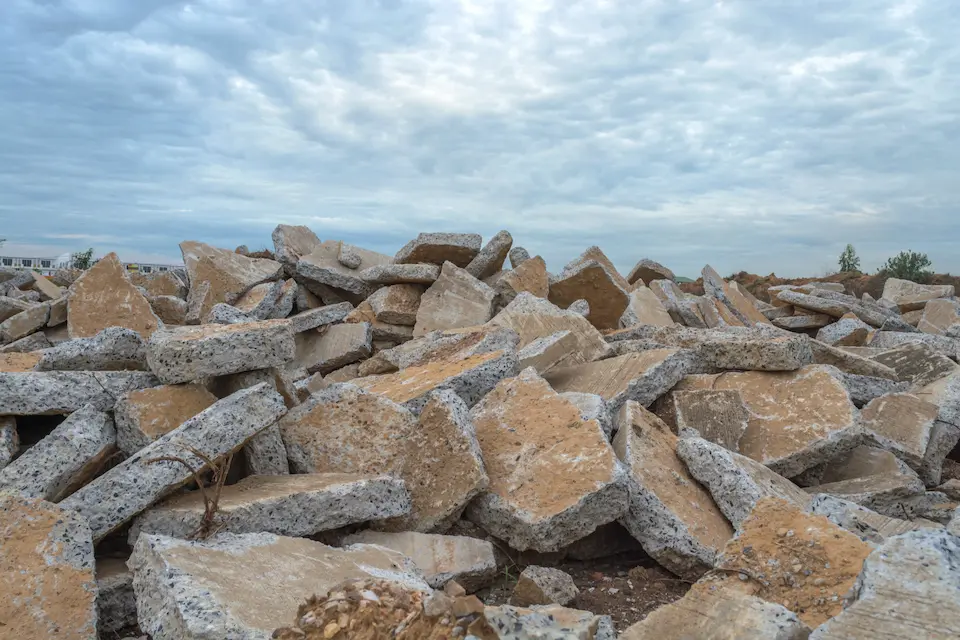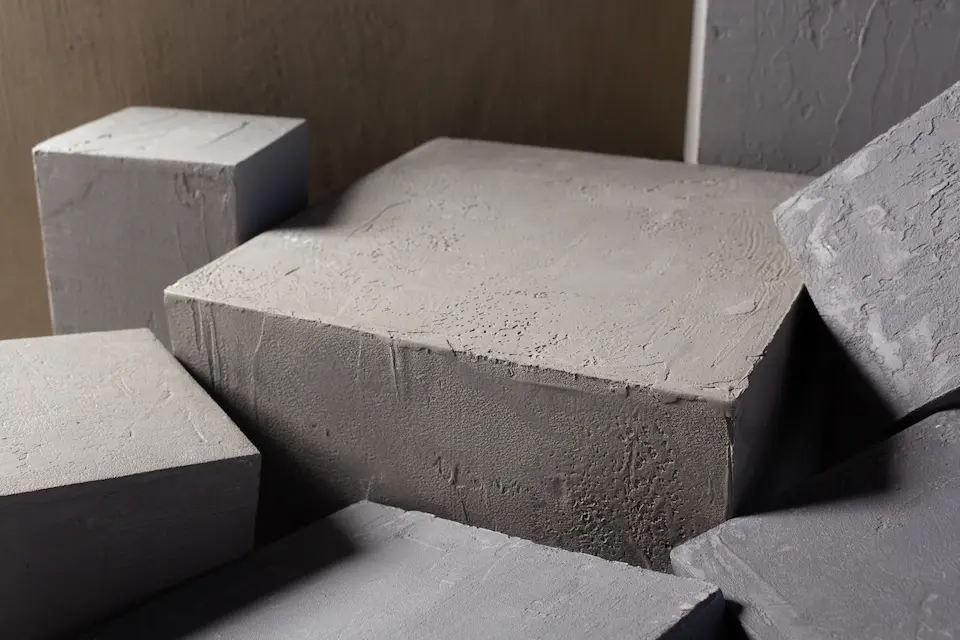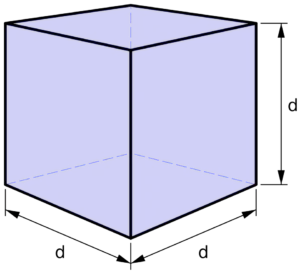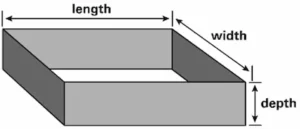
Whether you're a construction professional, a DIY enthusiast, or simply curious about the weight of this essential building material, this guide provided by our Raleigh concrete dumpster rental experts is designed to provide you with all the necessary information and tools you need to calculate concrete weight accurately.
The Importance of Knowing the Weight of Concrete for Dumpster Rentals
Concrete is a fundamental component in countless construction projects, ranging from foundations and driveways to bridges and skyscrapers. Understanding the total weight of concrete is crucial for various reasons, such as determining structural integrity, estimating transportation requirements, and assessing load-bearing capacity.
Factors That Affect the Weight of Concrete
The weight of concrete is influenced by several key factors that contribute to its overall density and mass. Understanding these factors is crucial for accurately calculating the weight of concrete in different scenarios. Let’s explore the primary factors that affect the weight of concrete.
Composition of Concrete Mixture
The materials used in a solid slab of concrete significantly impact its weight. The typical concrete mix includes cement, aggregates (such as sand, gravel, or crushed stone), and water. Different ratios of these materials will result in varying densities and weights of the final concrete product.
Water-Cement Ratio
The water-cement ratio plays a vital role in the weight of concrete. Increasing the water content in the mixture will result in more lightweight concrete while reducing the water content will increase its weight. It's important to maintain an appropriate water-cement ratio to ensure the concrete's strength and durability.
Aggregate Type and Proportion
The type and size of aggregates used in the concrete mix affect its weight. Aggregates can be lightweight, normal weight, or heavyweight, depending on their density. Lightweight aggregates, such as expanded clay or shale, reduce the overall weight of the concrete, while heavyweight aggregates, like iron ore or barite, increase it.
Reinforcement Materials
In reinforced concrete structures, the weight of steel reinforcement should be considered in addition to the concrete weight. Steel reinforcement, such as rebars or wire mesh, adds to the overall weight of the structure.
Admixtures and Additives
Various admixtures and additives may be incorporated into the concrete mix to enhance certain properties. These include air-entraining agents, accelerators, retarders, and plasticizers. While the impact on weight may be minimal, it's important to account for their presence when calculating the overall weight of concrete.
Curing and Moisture Content
The curing process affects the weight of the concrete. As concrete cures and loses moisture, it may experience slight shrinkage, resulting in a marginal reduction in weight. Conversely, excessive moisture retention due to inadequate curing can slightly increase the weight.
Unit Conversion
The choice of measurement units can affect weight calculations. Different regions may use different units, such as pounds, kilograms, or cubic feet, for weight and volume measurements. It's important to ensure consistent unit conversion and to use a concrete weight calculator to obtain accurate weight values.

Methods for Calculating How Much Concrete Weighs
Calculating the weight of concrete can be done using two common methods: determining the lbs per cubic foot and the lbs per cubic yard of concrete. These calculations provide different units of measurement, allowing you to choose the most appropriate one for your needs.
Concrete Weight per Cubic Foot

To find the weight of concrete per cubic foot, you need to know the density of the concrete mixture. The density is typically measured in pounds per cubic foot (lb/ft³) and can vary depending on the composition of the concrete.
The Formula
Weight per Cubic Foot = Density of Concrete (lb/ft³)
For example, if the density of your concrete mixture is 150 lb/ft³, then the weight of concrete per cubic foot would be 150 pounds.

Concrete Weight per Cubic Yard
Calculating the weight of concrete per cubic yard requires a slightly different approach. A cubic yard is a three-dimensional measurement, so you'll need to convert the weight per cubic foot to weight per cubic yard.
The Formula
Weight per Cubic Yard = Weight per Cubic Foot × 27
Since there are 27 cubic feet in a cubic yard, multiplying the weight per cubic foot by 27 will give you the weight per cubic yard. For instance, if the weight per cubic foot is 150 pounds, the weight of concrete per cubic yard would be 150 × 27 = 4,050 pounds.
Tips for Accurately Measuring Concrete Volume
Here are some tips to help you measure concrete volume accurately:
- Use Precise Measurements: When measuring concrete volume, it's crucial to use accurate measurements. Use reliable tools such as tape measures, laser distance meters, or surveying equipment to ensure precise measurements of length, width, and height.
- Consider Shape and Configuration: Concrete can be poured into various shapes and configurations, such as rectangular slabs, circular footings, or irregular forms. Take the time to carefully measure and account for the specific dimensions and shape of the concrete structure.
- Break Down Complex Shapes: For complex shapes that cannot be easily measured directly, consider breaking them down into simpler geometric forms. Measure each component separately and calculate their volumes individually. Then, sum up the volumes to obtain the total concrete volume.
- Account for Variations in Thickness: Concrete structures may have varying thicknesses in different sections. Measure the thickness at multiple points or use leveling tools to ensure accurate measurements. Take note of variations in thickness and calculate the volume accordingly.
- Allow for Over-excavation and Compaction: When measuring concrete volume for foundations or footings, consider that the excavation or formwork may be slightly larger than the final concrete dimensions to allow for proper compaction and reinforcement placement. Account for these factors when calculating the volume.
- Use Appropriate Conversion Factors: Depending on the units of measurement used in your calculations, ensure you use the correct conversion factors to obtain the desired volume measurement. For example, convert measurements from inches to feet or from centimeters to meters, as needed.
- Account for Wastage and Shrinkage: Concrete can experience slight wastage and shrinkage during the pouring and curing process. It's advisable to factor in a small percentage (usually around 5%) for wastage and shrinkage when calculating the required concrete volume.
- Seek Professional Advice: If you're unsure about how to accurately measure concrete volume for a specific project, don't hesitate to consult with a professional contractor or concrete supplier. They can provide guidance, specialized tools, and expertise to ensure precise volume calculations.
Determining the Appropriate Dumpster Size for Concrete Disposal
Determining the appropriate dumpster rental size for concrete disposal is crucial to efficiently manage your construction or renovation waste.
Amount of Concrete
Estimate the amount of concrete you need to dispose of. Consider the volume of concrete in cubic yards or cubic feet.
Weight Limitations
Concrete is a heavy material, so it's important to consider weight limitations when choosing a dumpster size. Check with your dumpster rental company for weight restrictions, as exceeding these limits may result in additional fees or even the need for a larger dumpster.
Dumpster Sizes
Dumpster sizes vary depending on the rental company, but common options for concrete dumpster disposal include 10-yard, 20-yard, and 30-yard dumpsters. Here's a general guide to help you understand the capacity of each size:
10-yard Dumpster
This size can hold approximately 10 cubic yards of material, equivalent to about three pickup truck loads of concrete. It's suitable for smaller concrete disposal projects, such as patio or driveway removals.
20-yard Dumpster
A 20-yard dumpster can accommodate around 20 cubic yards of debris, equivalent to about six pickup truck loads of concrete. It's a versatile option for medium-sized projects, including small demolitions or basement renovations.
30-yard Dumpster
With a capacity of approximately 30 cubic yards or nine pickup truck loads of concrete, a 30-yard dumpster is ideal for larger projects, such as full-scale demolitions or major construction site cleanups.
Space Availability
Consider the space available on your property for placing the dumpster. Ensure that you have enough room to accommodate the selected dumpster size without obstructing access to your site or causing any inconvenience.
Permit Requirements
Depending on your location, you may need permits or approvals for placing a dumpster on public property or within certain designated areas. Check with local authorities to understand any permitting requirements before renting a dumpster.
Consult with Dumpster Rental Companies
Contact a local dumpster rental company in your area and discuss your project requirements with them. They can provide guidance on appropriate dumpster sizes based on your specific needs and help you make an informed decision.
Concrete Weight Frequently Asked Questions
How much does typical concrete weigh?
The weight of typical concrete can vary depending on its composition, but it typically weighs around 145-155 pounds per cubic foot (pcf) or 2,300-2,500 kilograms per cubic meter (kg/m³).
How many yards of concrete are in my driveway?
To determine the number of yards of concrete in your driveway, you'll need to measure the length, width, and thickness of the driveway in feet. Multiply these measurements together to obtain the volume in cubic feet, then divide by 27 to convert it to cubic yards.
How much does a yard of concrete weigh?
A yard of concrete typically weighs around 4,000-4,500 pounds or 1,800-2,000 kilograms. However, the weight can vary depending on the specific mixture and density of the concrete.
What is the difference between concrete and cement?
Concrete and cement are often used interchangeably, but they are different materials. Cement is a binding agent used to make concrete. It is a powdered substance that, when mixed with water and aggregates like sand and gravel, forms the solid mass known as concrete.
How much does 1 ft of concrete weigh?
The weight of 1 cubic foot (1 ft³) of concrete is typically around 145-155 pounds (pcf) or 2,300-2,500 kilograms per cubic meter (kg/m³).
How much do 20 yards of concrete weigh?
Assuming a weight of approximately 4,000-4,500 pounds per yard, 20 yards of concrete would weigh roughly 80,000-90,000 pounds or 36,000-40,500 kilograms.
How much does a 4-inch slab of concrete weigh per square foot?
A 4-inch thick slab of concrete weighs around 40-45 pounds per square foot or 195-220 kilograms per square meter (kg/m²). The weight can vary slightly depending on the specific composition of the concrete.
How much does dry concrete weigh per cubic yard?
Dry concrete typically weighs around 3,500-4,000 pounds per cubic yard or 1,600-1,800 kilograms per cubic meter. The weight may vary based on the moisture content and specific composition of the dry concrete mixture.
If You're Considering a Dumpster Rental for Concrete Removal, Contact Blake Waste Today
If you're considering a dumpster rental for the removal of broken-up concrete or concrete slabs, Blake Waste offers dumpster rentals for residential, commercial, and industrial purposes.
Our experienced team of dumpster rental experts in Raleigh, NC is ready to guide you in selecting the right dumpster size for your project, ensuring a hassle-free and cost-effective waste management solution. Whether you have a small driveway project or a large-scale demolition, we have the perfect dumpster to accommodate your concrete debris.
Call Blake Waste today at 919-271-8675 or contact us by filling out the contact form below and experience our reliable service and commitment to customer satisfaction.

